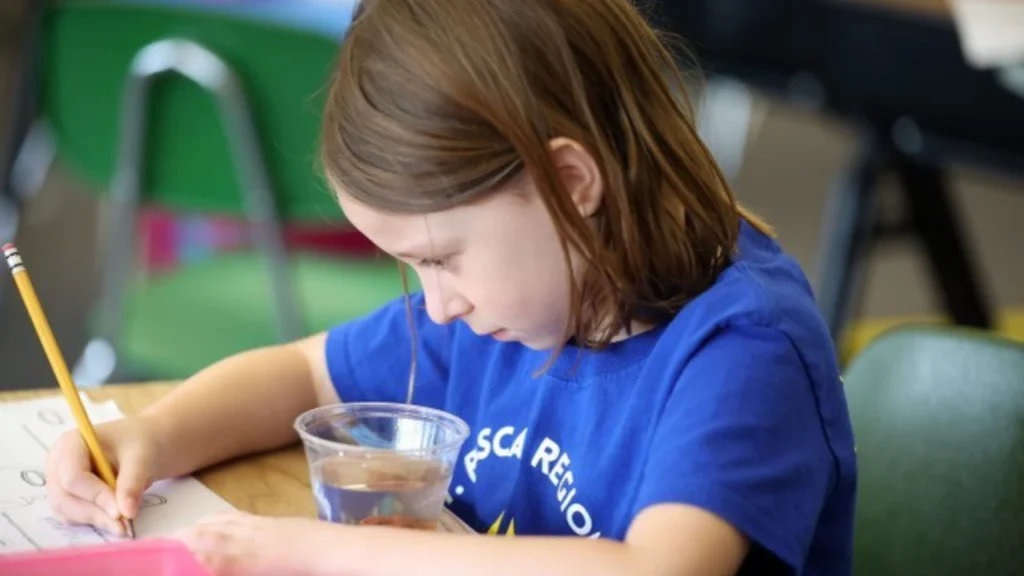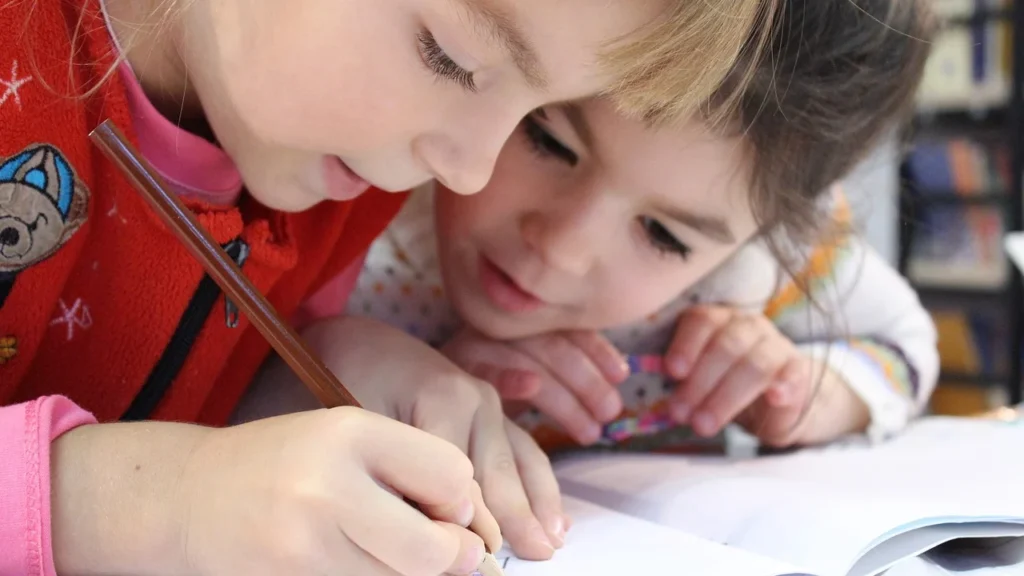![Murfreesboro Day School: Fostering Confidence Through a Unique Educational Journey Introduction to Murfreesboro Day School Confidence is more than just a desirable trait; it is a cornerstone of successful education, serving as the catalyst for both academic achievement and personal […]](https://dayschools.org/murfreesboro/wp-content/uploads/sites/3/2024/09/day-school-5-1.webp)
Table of Contents
Introduction to Murfreesboro Day School
Confidence is more than just a desirable trait; it is a cornerstone of successful education, serving as the catalyst for both academic achievement and personal growth. At Murfreesboro Day School, fostering this essential quality is not merely an objective but a fundamental philosophy that permeates every aspect of the school’s educational framework. The staff and educators understand that when children believe in themselves, they are more likely to take risks, embrace challenges, and engage wholeheartedly in their learning experiences.
Murfreesboro Day School is dedicated to crafting a nurturing environment where children feel safe and supported as they explore their potential. This nurturing atmosphere allows students to express their thoughts freely, ask questions without hesitation, and collaborate with peers in meaningful ways. By encouraging curiosity and creativity, the school helps students develop the self-assuredness needed to tackle both academic challenges and real-life situations.
The innovative curriculum at Murfreesboro Day School plays a significant role in instilling confidence. With a focus on hands-on learning, critical thinking, and the integration of creative arts with core subjects, students are encouraged to approach their education with enthusiasm. This dynamic approach not only captures their interest but also nurtures a love of learning that lasts a lifetime. Students learn to value effort and persistence, celebrating their achievements—big and small—as steps toward greater mastery.
Moreover, the school’s commitment to individualized learning ensures that each child’s unique strengths and interests are recognized and nurtured. Teachers work closely with students to create personalized learning plans, allowing them to thrive at their own pace and embrace their individuality. In this supportive setting, children learn that their voices matter, which fosters a deep sense of belonging and self-worth.
At Murfreesboro Day School, the belief in each child’s potential is palpable. The school community—comprising dedicated educators, involved parents, and engaged students—collaborates to cultivate a culture of encouragement and achievement. This shared commitment creates an environment where confidence flourishes, allowing students to blossom into capable, self-assured learners ready to take on the world.
The Foundation of Learning
At the heart of Murfreesboro Day School’s approach lies a profound commitment to early childhood education. The school recognizes that the formative years of a child’s life are critical for laying the groundwork for future success. Research shows that early experiences significantly influence a child’s social, emotional, and cognitive development. Understanding this, Murfreesboro Day School implements developmentally appropriate practices tailored to meet the diverse needs of its young learners. This foundational emphasis not only prepares children academically but also equips them emotionally and socially to navigate their educational journeys with confidence.
The curriculum at Murfreesboro Day School is thoughtfully designed to foster curiosity and a love of learning. Teachers engage students through interactive activities that stimulate their natural instincts for exploration and discovery. For instance, children are encouraged to investigate their environment, participate in hands-on projects, and engage in play-based learning. This approach helps to cultivate critical thinking skills, as children learn to ask questions, seek answers, and develop problem-solving strategies. Moreover, the school creates a warm and supportive atmosphere where children feel safe to express themselves and take intellectual risks.
In addition to academic readiness, Murfreesboro Day School places a strong emphasis on social and emotional development. The school nurtures essential life skills such as empathy, resilience, and collaboration through structured group activities and cooperative learning. By participating in team projects, children learn the importance of working together, listening to others, and valuing diverse perspectives. This emphasis on social interaction not only enhances their interpersonal skills but also helps to build a strong sense of community within the classroom.
Nurturing Individuality
Each child possesses a unique learning style, and Murfreesboro Day School is keenly aware of this diversity. The institution places a premium on recognizing these individual differences, ensuring that every child feels valued and understood. The school’s commitment to nurturing individuality means that children are not treated as a one-size-fits-all group; instead, each child’s strengths, interests, and challenges are carefully considered in the learning process.
To achieve this, educators employ differentiated instruction strategies that tailor lessons to resonate with students’ unique abilities. For example, some children may thrive with visual aids and hands-on activities, while others may benefit from verbal instructions or independent research projects. Teachers at Murfreesboro Day School skillfully adapt their methods to align with each student’s preferred learning style, promoting an inclusive environment where everyone has the opportunity to excel.
This personalized approach fosters a sense of ownership over their learning. Children are encouraged to set personal goals, reflect on their progress, and celebrate their achievements. As they engage with the material in ways that resonate with them, students develop a deeper understanding of their capabilities and gain the confidence to tackle new challenges. This empowerment not only enhances academic performance but also encourages a lifelong love of learning.

Innovative Curriculum
The curriculum at Murfreesboro Day School is thoughtfully crafted to provide a harmonious blend of core subjects and creative arts. This innovative design is aimed at stimulating intellectual curiosity while promoting creative expression, allowing children to explore their interests in a balanced and enriching manner. By integrating subjects such as mathematics, science, literacy, and social studies with art, music, and drama, the school creates a holistic learning environment that nurtures well-rounded individuals.
Hands-on learning activities are a cornerstone of this innovative curriculum. Rather than relying solely on traditional teaching methods, Murfreesboro Day School emphasizes experiential learning. Students engage in projects that require them to apply concepts in real-world contexts, such as conducting science experiments, participating in collaborative art projects, or exploring local history through field trips. This approach not only makes learning more engaging but also encourages students to make meaningful connections between what they learn in the classroom and the world around them.
Moreover, this interactive curriculum enhances retention by allowing students to experience concepts first-hand. For example, when studying ecosystems, students might visit a local nature preserve, observe different habitats, and document their findings. This kind of experiential learning fosters a deeper understanding of complex ideas, enabling children to grasp and retain information more effectively.
Additionally, the incorporation of creative arts into the curriculum encourages self-expression and cultivates emotional intelligence. Students are given the freedom to explore their creativity through various mediums, such as painting, music, and storytelling. This not only enriches their educational experience but also helps them develop confidence in their abilities and discover their unique voices.
Cultivating Critical Thinking
At Murfreesboro Day School, cultivating critical thinking skills is paramount to the educational experience. The school believes that the ability to think critically is essential for success in today’s fast-paced and complex world. Therefore, educators employ inquiry-based learning strategies that encourage students to ask questions, explore possibilities, and engage in rigorous problem-solving.
This pedagogical method empowers learners to think independently and analytically. Instead of passively absorbing information, students are encouraged to take an active role in their learning. They are guided to pose questions that spark their curiosity, leading them to seek out answers through research, discussion, and hands-on exploration. For example, during a unit on engineering, students might be tasked with designing and building a simple machine, prompting them to brainstorm, prototype, and iterate on their designs based on feedback and observation.
Moreover, critical thinking is woven into everyday classroom activities. Teachers facilitate discussions that challenge students to consider multiple perspectives and think critically about the information presented to them. By engaging in debates, analyzing texts, and exploring real-world issues, students develop the ability to evaluate evidence, assess arguments, and form their own opinions based on sound reasoning.
This focus on critical thinking not only prepares students for academic challenges but also equips them with essential life skills. As they learn to approach problems with creativity and logical reasoning, they become adept at navigating the complexities of the world around them. This skill set lays the groundwork for lifelong learning and adaptability, ensuring that students are prepared to tackle future challenges with confidence and resilience.
Fostering Social Skills
Social development is integral to the holistic education provided at Murfreesboro Day School. Recognizing that a child’s ability to interact effectively with others is just as important as academic achievement, the school places a strong emphasis on cultivating essential social skills. Collaborative projects and teamwork are staples of the classroom experience, offering students numerous opportunities to practice cooperation and communication in a supportive setting.
Through engaging group activities, children learn the importance of listening to different perspectives and working together toward common goals. For instance, in a science project, students might be tasked with building a model of an ecosystem. This hands-on experience requires them to brainstorm ideas, assign roles, and collaborate on the construction of their model, teaching them not just the subject matter but also how to share responsibilities and appreciate the contributions of their peers.
Moreover, the curriculum includes targeted components focused on conflict resolution and empathy building. These lessons empower students to navigate disagreements constructively, teaching them to express their feelings, understand others’ perspectives, and find amicable solutions to conflicts. Role-playing exercises and guided discussions encourage children to step into each other’s shoes, fostering a deeper understanding of empathy and compassion. As a result, students are better equipped with the interpersonal skills necessary for successful interactions throughout their lives, both in school and beyond.
The school’s commitment to fostering social skills extends beyond the classroom. Extracurricular activities, such as sports, drama, and community service, provide additional venues for children to practice their social abilities. By participating in team sports, for example, students learn about teamwork, discipline, and fair play while building lasting friendships. These experiences reinforce the value of community and encourage children to support one another, cultivating a sense of belonging and connection.

Empowering Educators
The role of educators at Murfreesboro Day School extends far beyond traditional teaching; it encompasses the holistic development of each child. The institution recognizes that highly skilled and motivated teachers are essential for fostering a vibrant learning environment. To that end, Murfreesboro Day School invests significantly in professional development, ensuring that teachers are equipped with innovative teaching methods and contemporary pedagogical techniques.
This commitment to educator empowerment involves ongoing training and collaboration among staff. Teachers participate in workshops and seminars that focus on the latest research in child development, effective instructional strategies, and the integration of technology in the classroom. By staying informed about current trends and practices, educators are better positioned to engage students in meaningful ways and adapt to their diverse learning needs.
Furthermore, the school fosters a culture of collaboration among educators, encouraging them to share insights and strategies with one another. This collegial atmosphere enhances the professional growth of teachers and ultimately benefits students, as educators implement best practices and draw upon each other’s strengths. The result is a dynamic educational environment where both teachers and students can flourish.
Additionally, the empowerment of educators at Murfreesboro Day School is reflected in their approach to individual student needs. Teachers are encouraged to take a personalized approach to instruction, tailoring lessons to accommodate different learning styles and abilities. This flexibility allows educators to connect with students on a deeper level, building rapport and trust that enhances the overall learning experience.
Engaging Parents and Community
The partnership between school and home is a vital element in fostering confidence and success for children. At Murfreesboro Day School, this partnership is actively nurtured through a variety of initiatives designed to encourage parental involvement. The school firmly believes that when families are engaged in their children’s education, it enhances the overall educational experience and supports the development of well-rounded individuals.
To facilitate this engagement, Murfreesboro Day School offers numerous opportunities for parents to participate in school activities. Regular parent-teacher conferences provide a platform for open communication about each child’s progress and any areas where support may be needed. Additionally, the school organizes workshops and informational sessions on topics relevant to child development and education, empowering parents with knowledge and resources to better support their children’s learning at home.
Beyond formal events, the school encourages families to be active participants in daily classroom activities. Whether volunteering for field trips, assisting with classroom projects, or sharing their expertise during special presentations, parents are invited to contribute in ways that resonate with their interests and skills. This hands-on involvement not only strengthens the connection between home and school but also allows parents to witness firsthand the enriching environment their children are a part of.
Moreover, Murfreesboro Day School fosters strong connections with the broader community, creating a network of support that benefits both students and families alike. The school collaborates with local organizations, businesses, and service groups to create meaningful partnerships that enhance educational opportunities. For instance, community-based projects may involve students in environmental initiatives, helping them understand their role in the community while developing a sense of social responsibility.
These community connections also provide students with exposure to a wider array of experiences and perspectives. By participating in community events, children learn to appreciate diversity, cultivate empathy, and develop an understanding of their community’s values and challenges. This broader context enriches their educational journey and encourages them to be active, engaged citizens.

Celebrating Achievements
Recognition plays a crucial role in building confidence among students, and Murfreesboro Day School understands the importance of celebrating both individual and collective achievements. The school implements various recognition programs designed to highlight students’ successes, reinforcing the belief that progress should be acknowledged and celebrated.
One of the core principles of Murfreesboro Day School’s approach is the emphasis on a growth mindset. Students are encouraged to set personal goals and reflect on their progress throughout the year. Regular assemblies and award ceremonies provide opportunities to recognize not only academic achievements but also improvements in effort, behavior, and teamwork. By celebrating milestones, the school fosters a culture of positivity and encouragement, motivating students to strive for their best.
Additionally, the school incorporates peer recognition into its programs. Initiatives like “Student of the Month” or “Kindness Awards” allow students to celebrate each other’s accomplishments, promoting a sense of community and camaraderie. This practice not only reinforces the importance of supporting one another but also teaches students valuable lessons in humility and gratitude.
By emphasizing progress and milestones, Murfreesboro Day School cultivates a growth mindset among students. Children are encouraged to embrace challenges and view setbacks as opportunities for learning rather than obstacles. This perspective helps them develop resilience and perseverance, equipping them with the tools needed to navigate future challenges.
Conclusion
The long-term benefits of fostering confidence through education are profound, influencing not just academic success but also shaping individuals who are socially adept and emotionally resilient. At Murfreesboro Day School, the vision for the future is clear: to continue nurturing confident learners who are prepared to navigate the complexities of life with assurance and grace.
Moreover, the school’s comprehensive approach equips students with essential life skills that extend beyond the classroom. By emphasizing collaboration, empathy, and critical thinking, Murfreesboro Day School prepares its students to thrive in an interconnected world. They learn the importance of building strong relationships, adapting to change, and approaching challenges with a positive mindset. These qualities are invaluable as they transition into higher education and eventually into the workforce, where adaptability and resilience are crucial.
As Murfreesboro Day School continues to evolve and innovate, its commitment to fostering confidence remains steadfast. The school aims to provide an educational experience that not only prepares students academically but also nurtures their emotional and social development. By creating an environment where children feel valued and supported, the school cultivates confident learners who are ready to embrace the future.
The unique educational journey at Murfreesboro Day School is designed to empower students, enabling them to explore their passions, embrace their individuality, and thrive in a rapidly changing world. The long-term impact of this approach is evident in the well-rounded individuals it produces—students who are not only equipped with knowledge but are also prepared to engage with the world around them with confidence, curiosity, and compassion. As parents, your involvement in this journey is invaluable, and together, we can foster the next generation of leaders, innovators, and compassionate citizens.






